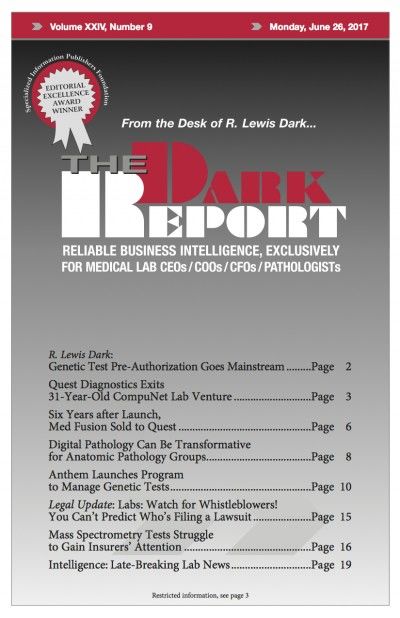NEWS STORIES ABOUT TWO DIFFERENT FEDERAL WHISTLEBLOWER CASES against lab companies provide a reminder that managers of every clinical laboratory and pathology group must be vigilant about compliance, because potential whistleblowers can emerge from the unlikeliest of places. The first example involves Piedmont Pathology in Hickory, N.C. In May, it agreed to pay the federal […]
To access this post, you must purchase The Dark Report.


